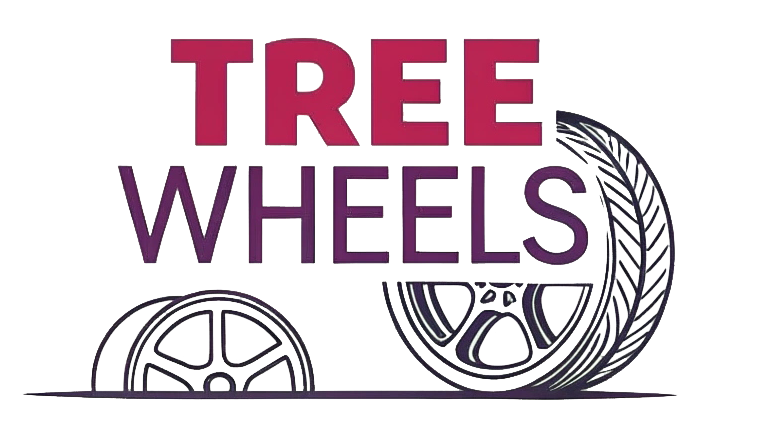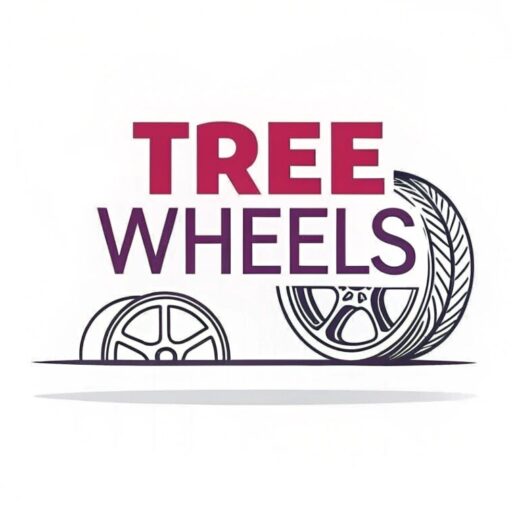Are you wondering why forged rims cost so much? It seems like you could buy a used car for the price of a set of these wheels! You're not alone in thinking this.
Forged rims are expensive because they are made using high-quality materials and a complex manufacturing process that ensures superior strength and performance compared to cast rims.

You might be thinking, "Are they really worth all that extra money?" Let's find out together.
Are Forged Rims Worth It?
Tired of bending your rims on every pothole? Want wheels that can handle serious track days? Maybe forged rims are the answer you've been looking for to solve these problems.
For many car enthusiasts and performance drivers, forged rims are worth the investment because they offer increased strength, reduced weight, and enhanced performance benefits that justify the higher price.

But are these benefits really noticeable when you are just driving around every day? Let’s understand this better. When I first started learning about wheels, I was really confused. Why were some wheels priced so much higher than others? The answer, as I learned over time, is all about how they are made and what materials are used. Forged rims start with a single block of very good aluminum, usually 6061-T6 aluminum alloy. This material is known to be both strong and light, and it's often used in making airplanes. The way they make forged rims involves pushing the metal very hard to get it into shape. This forging process makes the aluminum stronger and last longer than the aluminum used in cheaper wheels that are just poured into molds. Think about wood. Wood that has straight lines in it is stronger than wood that has knots and curves. This extra strength means forged rims are less likely to get bent or broken when you hit bumps, which is very important if you drive fast or your roads are not smooth.
To help you see the difference, here’s a simple comparison:
| Feature | Forged Rims | Cast Rims |
|---|---|---|
| Strength | Significantly Stronger | Weaker |
| Weight | Lighter | Heavier |
| Material | High-grade 6061-T6 Aluminum | Lower-grade Aluminum Alloys |
| Manufacturing | High-pressure Forging & CNC | Molten Metal Poured into Molds |
| Durability | More Durable & Long-lasting | Less Durable |
| Performance | Enhanced Handling & Response | Standard Performance |
| Cost | More Expensive | Less Expensive |
Why are Forged Wheels More Expensive?
Ever wondered why two sets of wheels can look almost the same but cost very different amounts of money? It's not just about how they look; how they are made is a big reason for the price.
Forged wheels are more expensive because of the high cost of the materials needed, the complicated forging process, and the careful machining needed to make a wheel that is strong, long-lasting, and light.

But what exactly makes making them this way cost so much more? Let me explain, it's a long process from the start to when you get a finished wheel. It starts with that expensive block of 6061-T6 aluminum. This isn't just any aluminum; it's a special type made for things that need to be very strong. Then comes the forging part. Imagine pushing down with huge force on this aluminum block, shaping it like a wheel. This needs special machines and a lot of power. After forging, the wheel shape is still not done. It needs to be shaped very precisely using machines called CNC machines. These machines are like super accurate robots that cut out the final wheel design. This shaping takes a lot of time and needs skilled people to make sure every wheel is exactly right. It’s like carving a statue – you start with a big piece of stone and slowly cut away parts to get the final shape. All these steps – good materials, special forging, and careful shaping – make the cost to make forged wheels much higher than wheels that are just poured into a mold.
Here’s a breakdown of why forged wheels cost more:
| Cost Factor | Description | Impact on Price |
|---|---|---|
| Raw Materials | Use of high-grade 6061-T6 aluminum alloy, which is more expensive. | High |
| Forging Process | Requires specialized, heavy machinery and significant energy consumption. | High |
| Precision Machining | CNC machining is time-consuming and requires skilled operators and equipment. | Medium-High |
| Quality Control | Strict quality checks and testing at each stage add to production costs. | Medium |
| Labor & Skill | Skilled engineers and technicians are needed for design and manufacturing. | Medium |
What are the Disadvantages of Forged Wheels?
Okay, forged wheels sound really good, don't they? Stronger, lighter, better performance. But is there something not so good about them? Are there any reasons not to choose forged wheels?
Besides costing more, the main downside of forged wheels is that you might not have as many design choices compared to wheels made by casting, and if they get damaged, fixing them can be harder and cost more.

It's true, forged wheels are not the best choice for everyone in every situation. While they do perform better, there are a couple of things to think about. First, you might not find as many different looks or styles. Because of how forged wheels are made, it's harder and more expensive to make very detailed or fancy designs compared to casting. Wheels made by casting, because they are molded, can be made into many more shapes and styles more easily. So, if you really want wheels that look very special or unique, you might find more options if you look at cast wheels. Second, fixing them if they break can be a problem. Even though forged wheels are stronger, they can still get damaged. If a forged wheel is badly damaged, it can be harder and maybe more expensive to fix than a cast wheel. This is because forging changes the metal inside, and special ways of fixing them might be needed. But, remember that because they are stronger, forged wheels are less likely to get damaged in the first place if you drive normally. It’s a choice – pay more at the start and maybe more to fix them if they break, but they are stronger and perform better in return.
Here’s a quick look at the good and bad points of forged wheels:
| Advantages of Forged Wheels | Disadvantages of Forged Wheels |
|---|---|
| Superior Strength & Durability | Higher Initial Cost |
| Lighter Weight (Improved Performance) | Potentially Limited Design Options |
| Enhanced Vehicle Handling | More Complex/Costly Repairs |
| Better Resistance to Damage |
Are Fake Rims Bad?
Have you seen those really cheap rims online that look just like the expensive brands? Are you thinking about saving some money and buying them? Wait a minute – are fake rims actually a good idea or not?
Yes, fake rims are usually bad because they are often made from poor materials and using bad ways of making them, which can cause the wheel to break, making driving unsafe and reducing performance.

Let me be very clear: buying fake rims is a really bad idea and not worth the risk. It’s tempting to save money, especially when they look so much like the real ones in pictures online. But the truth is, fake rims are almost always made using cheap materials and cutting corners in how they are made. They might look good from far away, but they are actually dangerous. Often, fake rims are made from cheap, low-quality aluminum using casting methods that are all about making them fast and cheap, not about making them strong and good. They skip important checks to make sure they are good quality, and the wheels might not be tested to see if they can carry the weight of the car or handle bumps. This means they are much more likely to crack, bend, or even break apart when you drive, especially if you are driving hard or hit a pothole. If a wheel breaks when you are driving fast, it can be very dangerous and cause you to lose control and have an accident. Also, fake rims often don't meet safety rules and checks like DOT, TÜV, or JWL, which real wheel makers follow. Think about buying a fake safety helmet – it might look like a helmet, but when you really need it to protect you, it will fail. When it comes to wheels, which are very important for keeping you safe in your car, it’s never a good idea to risk it with fake ones. Always buy from trusted brands and official sellers to make sure you are getting real, safe, and dependable wheels. Like I always say, you get what you pay for, and when it comes to safety, it's worth paying for quality.
Here’s why you should avoid fake rims at all costs:
| Feature | Genuine Rims | Fake Rims |
|---|---|---|
| Materials | High-Quality Alloys (e.g., 6061-T6 Aluminum) | Low-Grade, Inexpensive Materials |
| Manufacturing | Precision Forging/Casting & Strict QC | Inferior Processes, Minimal Quality Control |
| Safety Standards | Meet or Exceed DOT, TÜV, JWL Standards | Often Fail to Meet Basic Safety Standards |
| Durability & Strength | Designed for High Performance & Durability | Weak, Prone to Cracking, Bending, or Failure |
| Performance | Reliable & Consistent Performance | Unpredictable & Potentially Dangerous Performance |
| Longevity | Long Lifespan | Short Lifespan, Need Frequent Replacement |
| Overall Value | Worth the Investment for Safety & Performance | High Risk, Low Value, Ultimately More Expensive |
Conclusion
Forged rims cost more for a good reason. Their superior materials and manufacturing process deliver real performance and safety benefits, making them a good investment for those who value quality and driving performance.



